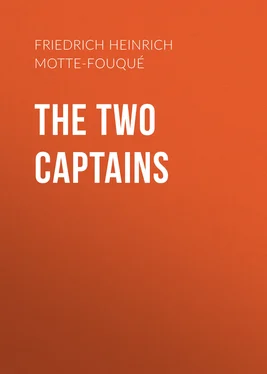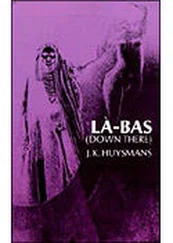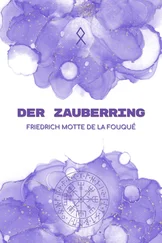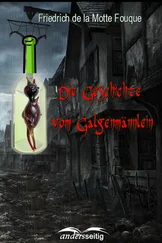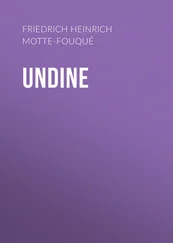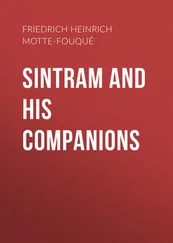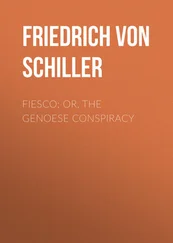Friedrich Heinrich Karl de La Motte-Fouqué - The Two Captains
Здесь есть возможность читать онлайн «Friedrich Heinrich Karl de La Motte-Fouqué - The Two Captains» — ознакомительный отрывок электронной книги совершенно бесплатно, а после прочтения отрывка купить полную версию. В некоторых случаях можно слушать аудио, скачать через торрент в формате fb2 и присутствует краткое содержание. Жанр: foreign_prose, История, foreign_edu, foreign_antique, на английском языке. Описание произведения, (предисловие) а так же отзывы посетителей доступны на портале библиотеки ЛибКат.
- Название:The Two Captains
- Автор:
- Жанр:
- Год:неизвестен
- ISBN:нет данных
- Рейтинг книги:4 / 5. Голосов: 1
-
Избранное:Добавить в избранное
- Отзывы:
-
Ваша оценка:
- 80
- 1
- 2
- 3
- 4
- 5
The Two Captains: краткое содержание, описание и аннотация
Предлагаем к чтению аннотацию, описание, краткое содержание или предисловие (зависит от того, что написал сам автор книги «The Two Captains»). Если вы не нашли необходимую информацию о книге — напишите в комментариях, мы постараемся отыскать её.
The Two Captains — читать онлайн ознакомительный отрывок
Ниже представлен текст книги, разбитый по страницам. Система сохранения места последней прочитанной страницы, позволяет с удобством читать онлайн бесплатно книгу «The Two Captains», без необходимости каждый раз заново искать на чём Вы остановились. Поставьте закладку, и сможете в любой момент перейти на страницу, на которой закончили чтение.
Интервал:
Закладка:
“She thanked me with graceful and courteous words, and called me her knight; but in my state of enchantment I could not utter a syllable, and she must have almost thought me dumb. At length my speech returned, and the prayer at once was breathed forth from my heart, that the sweet lady would often again allow me to see her in this garden; for that in a few weeks the service of the emperor would drive me into the burning land of Africa, and that until then she should vouchsafe me the happiness of beholding her. She looked at me half smiling, half sadly, and said, ‘Yes.’ And she has kept her word and has appeared almost daily, without our having yet spoken much to each other. For although she has been sometimes quite alone, I could never begin any other topic but that of the happiness of walking by her side. Often she has sung to me, and I have sung to her also. When I told her yesterday that our departure was so near, her heavenly eyes seemed to me suffused with tears. I must also have looked sorrowful, for she said to me, in a consoling tone, ‘Oh, pious, childlike warrior! one may trust you as one trusts an angel.’ After midnight, before the morning dawn breaks for your departure, I give you leave to take farewell of me in this very spot. If you could, however, find a true and discreet comrade to watch the entrance from the street, it would be well, for many a soldier may be passing at that hour through the city on his way from some farewell carouse. Providence has now sent me such a comrade, and at one o’clock I shall go joyfully to the lovely maiden.”
“I only wish the service on which you require me were more rich in danger,” rejoined Fadrique, “so that I might better prove to you that I am yours with life and limb. But come, noble brother, the hour for my adventure is arrived.”
And wrapped in their mantles, the youths walked hastily toward the city, Fadrique carrying his beautiful guitar under his arm.
CHAPTER II
The night-smelling flowers in Lucila’s window were already beginning to emit their refreshing perfume when Fadrique, leaning in the shadow of the angle of an old church opposite, began to tune his guitar. Heimbert had stationed himself not far from him, behind a pillar, his drawn sword under his mantle, and his clear blue eyes, like two watching stars, looking calmly and penetrating around. Fadrique sang:
“Upon a meadow green with spring,
A little flower was blossoming,
With petals red and snowy white;
To me, a youth, my soul’s delight
Within that blossom lay,
And I have loved my song to indite
And flattering homage pay.
“Since then a wanderer I have been,
And many a bloody strife have seen;
And now returned, I see
The little floweret stands no more
Upon the meadow as before;
Transplanted by a gardener’s care,
And hedged by golden trellis there,
It is denied to me.
“I grudge him not his trelllsed guard,
His bolts of iron, strongly barred;
Yet, wandering in the cool night-air,
I touch my zither’s string,
And as afore her beauties rare,
Her wondrous graces sing,
And e’en the gardener shall not dare
Refuse the praise I bring.”
“That depends, Senor,” said a man, stepping close, and as he thought unobserved, before Fadrique; but the latter had already been informed of his approach by a sign from his watchful friend, and he was therefore ready to answer with the greater coolness, “If you wish, Senor, to commence a suit with my guitar, she has, at all events, a tongue of steel, which has already on many occasions done her excellent service. With whom is it your pleasure to speak, with the guitar or the advocate?”
While the stranger was silent from embarrassment, two mantled figures had approached Heimbert and remained standing a few steps from him, as if to cut off Fadrique’s flight in case he intended to escape. “I believe, dear sirs,” said Heimbert in a courteous tone, “we are here on the same errand—namely, to prevent any intrusion upon the conference of yonder knights. At least, as far as I am concerned, you may rely upon it that any one who attempts to interfere in their affair will receive my dagger in his heart. Be of good cheer, therefore; I think we shall both do our duty.” The two gentlemen bowed courteously and were silent.
The quiet self-possession with which the two soldiers carried on the whole affair was most embarrassing to their three adversaries, and they were at a loss to know how they should begin the dispute. At last Fadrique again touched the strings of his guitar, and was preparing to begin another song. This mark of contempt and apparent disregard of danger and hazard so enraged Lucila’s husband (for it was he who had taken his stand by Don Fadrique) that without further delay he drew his sword from his sheath, and with a voice of suppressed rage called out, “Draw, or I shall stab you!” “Very gladly, Senor,” replied Fadrique quietly; “you need not threaten me; you might as well have said so calmly.” And so saying he placed his guitar carefully in a niche in the church wall, seized his sword, and, bowing gracefully to his opponent, the fight, began.
At first the two figures by Heimbert’s side, who were Lucila’s brothers, remained quite quiet; but when Fadrique began to get the better of their brother-in-law they appeared as if they intended to take part in the fight. Heimbert therefore made his mighty sword gleam in the moonlight, and said, “Dear sirs, you will not surely oblige me to execute that of which I previously assured you? I pray you not to compel me to do so; but if it cannot be otherwise, I must honorably keep my word, you may rely upon it.” The two young men remained from that time motionless, surprised both at the decision and at the true-hearted friendliness that lay in Heimbert’s words.
Meanwhile Don Fadrique, although pressing hard upon his adversary, had generously avoided wounding him, and when at last by a dexterous movement he wrested his sword from him. Lucila’s husband, surprised at the unexpected advantage, and in alarm at being thus disarmed, retreated a few steps. But Fadrique threw the weapon adroitly into the air, and catching it again near the point of the blade, he said, as he gracefully presented the hilt to his opponent, “Take it, Senor, and I hope our affair of honor is now settled, as you will grant under these circumstances that I am only here to show that I fear no sword-thrust in the world. The bell of the old cathedral is now ringing twelve o’clock, and I give you my word of honor as a knight and a soldier that neither is Dona Lucila pleased with my attentions nor am I pleased with paying them; from henceforth, and were I to remain a hundred years in Malaga, I would not continue to serenade her in this spot. So proceed on your journey, and God be with you.” He then once more greeted his conquered adversary with serious and solemn courtesy, and withdrew. Heimbert followed him, after having cordially shaken hands with the two youths, saying, “No, dear young sirs, do not let it ever again enter your heads to interfere in any honorable contest. Do you understand me?”
He soon overtook his companion, and walked on by his side so full of ardent expectation, and with his heart beating so joyfully and yet so painfully, that he could not utter a single word. Don Fadrique Mendez was also silent; it was not till Heimbert paused before an ornamented garden-gate, and pointed cheerfully to the pomegranate boughs richly laden with fruits which overhung it, saying, “This is the place, dear comrade,” that the Spaniard appeared as if about to ask a question, but turning quickly round he merely said, “I am pledged to guard this entrance for you till dawn. You have my word of honor for it.” So saying he began walking to and fro before the gate, with drawn sword, like a sentinel, and Heimbert, trembling with joy, glided within the gloomy and aromatic shrubberies.
Читать дальшеИнтервал:
Закладка:
Похожие книги на «The Two Captains»
Представляем Вашему вниманию похожие книги на «The Two Captains» списком для выбора. Мы отобрали схожую по названию и смыслу литературу в надежде предоставить читателям больше вариантов отыскать новые, интересные, ещё непрочитанные произведения.
Обсуждение, отзывы о книге «The Two Captains» и просто собственные мнения читателей. Оставьте ваши комментарии, напишите, что Вы думаете о произведении, его смысле или главных героях. Укажите что конкретно понравилось, а что нет, и почему Вы так считаете.
